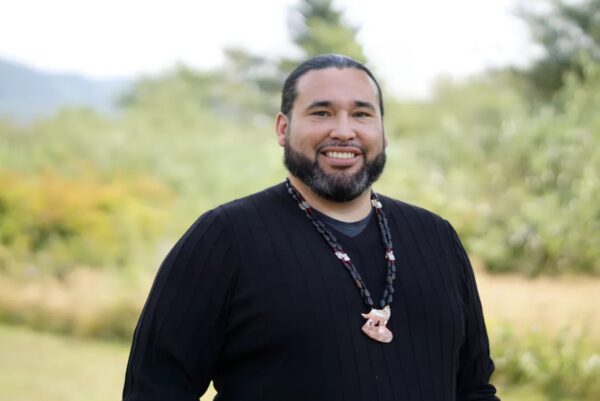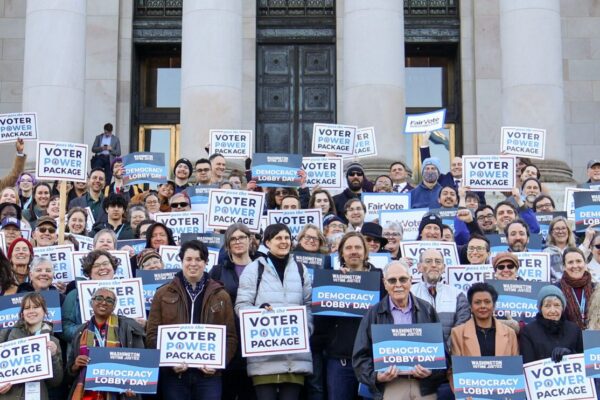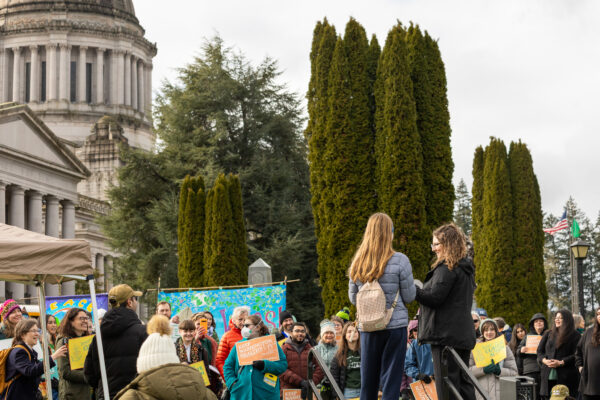Happy Pride Month! At WCA, we are committed to protecting people and nature as one — and that includes LGBTQIA+ people!
The fight for environmental justice is inextricably linked to the fight for racial justice, economic justice, and LGBTQIA+ justice. To mitigate the harmful effects of climate change and toxic pollution, policymakers must view them as interconnected and interdependent. As the nation celebrates Pride Month and the progress on LGBTQIA+ rights, it must also commit to achieving a just climate and environment for all.
This month, we’ve hosted numerous events with our friends from QTPOC Hikers and Patagonia including a hike and a clean up in Seattle’s Capitol Hill neighborhood. We’re also a proud sponsor of Tacoma Pride and Earth Gay in Tacoma on July 22 – register here
As we celebrate Pride Month, it bears remembering that nature is nothing if not diverse, nothing if not multifaceted. As many as 1,500 species have been observed to engage in same sex behavior, everything from damselflies to dolphins. The true number is no doubt much larger. And a recent essay in Scientific American, posits that “present-day diversity in sexual behavior in animals stems from an ancestral background of indiscriminate mating among individuals of all sexes.” The authors go on to suggest that our lack of knowledge about the variety of sex in the animal kingdom says far more about human prejudices than anything else.
Many species in nature call into question the either/or binary way of viewing gender. Male cuttlefish and male marsh harriers camouflage themselves in female markings to avoid being attacked by other males. Some male garter snakes emit female pheromones to draw other males away from potential mates. It’s complicated.
It’s important to acknowledge and understand that, as marginalized groups, people who are LGBTQIA+ are much more likely to suffer from the effects of polluted air and water because they may find it difficult to find housing in many areas. They may find it difficult to find a job. This prejudice often pushing them to live in areas near factories and busy roads, where the risk of cancer, respiratory and heart disease is higher.
Here are some LGBTQIA+ conservation champions who are fighting for a cleaner environment and healthier communities:
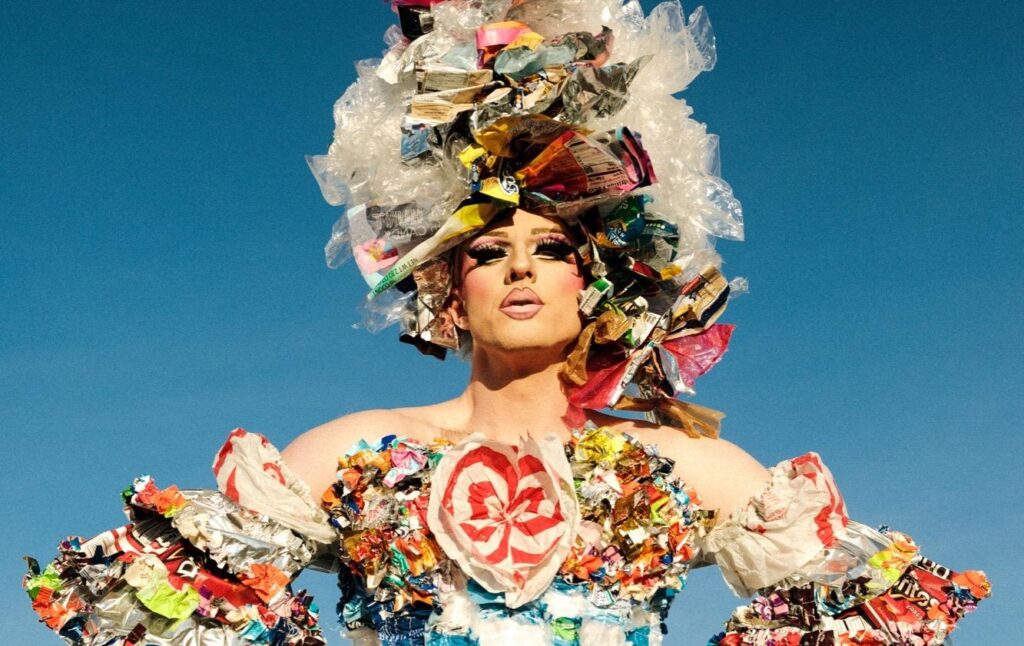
Self-described as the world’s “first backpacking queen,” drag performer Pattie Gonia has become a social media personality known for posing in wild spaces, often wearing high heeled boots and/or elaborate drag outfits like an upcycled sock dress or a pansy costume. They posed in a ball gown made of trash to make a point about plastic pollution, and next to an oil rig to push for fossil fuel divestment. This month, they celebrated Pride with Yosemite National Park rangers.
Pattie Gonia, both captured in images and created by photographer Wyn Wiley, seeks to spread the message that the outdoors is for everyone, as well as to heighten awareness of the harm that carbon pollution does to us all. That has resonated with online audiences. At last count, the Bend, Oregon resident had 539,000 Instagram followers.
Gonia is portrayed by Nebraska native Wyn Wiley, a photographer, skier, through-hiker and rock climber. In an interview with Grist, they said, “I just wish that we could stop fighting each other, so that we could fight the actual forces that are killing the planet.”
The North Face featured them in several ads this spring, one of which said, “Come out…in nature.” That led to a national right-wing backlash from commentators and politicians, as well as calls to boycott the outdoor retailer. The North Face stood behind the performer, who continues their work. In January, Wiley cofounded a nonprofit called Outdoorist Oath, which is committed to protecting the planet, promoting inclusion in outdoor spaces, and inspiring adventure. Wiley, like Washington Conservation Action, seeks to protect nature and people as one.
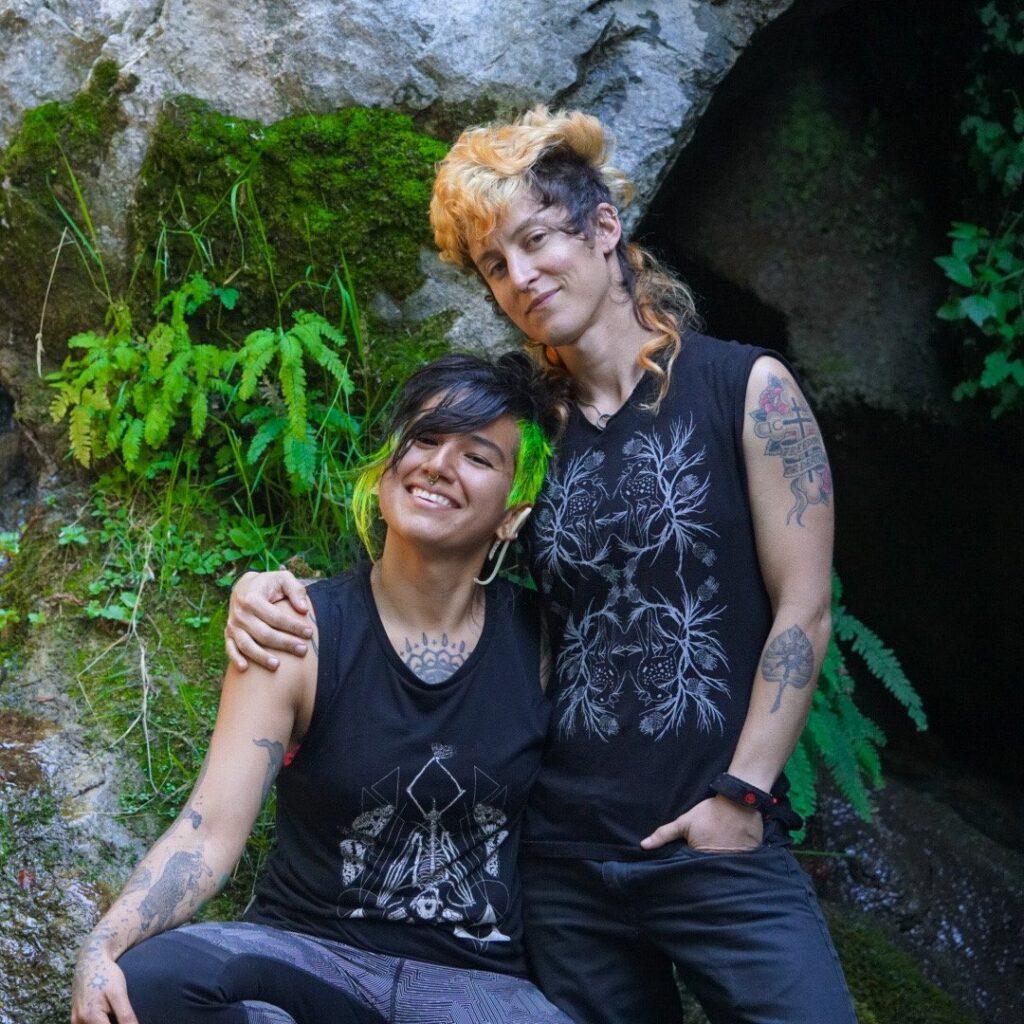
Spouses Pinar and So Sinapoulos-Lloyd founded Queer Nature, to bring the queer community outside, and to challenge dominant narratives about colonization, categorization, and exclusion. Through classes and excursions, they help people to build outdoor skills and to reclaim relationships with the natural world. They teach things like camouflage, friction fire, and twisting milkweed into rope.
In a recent interview, Pinar told Yes! Magazine that their queer identity has been formed by their Indigenous lineage from the Quechua people of Peru. As a transgender youth pathologized as neurodivergent, they found connection in cottonwood trees, sagebrush and a creek near the home in Arizona where they grew up.
Pinar’s partner, So, grew up in a New England town and was inspired by their Greek mother’s wool weaving. This fostered an interest in making things with organic objects which in turn led them to study agriculture and permaculture and to work on farms. So and Pinar connected as children of immigrants who often felt like outsiders in spaces that erased queer and Indigenous identity and knowledge.
Pinar Sinopoulos-Lloyd is a trans ambassador of Native Women’s Wilderness and the 2020 recipient of Audubon National Society’s National Environmental Champion. The couple have recently relocated to Washington state.
In a recent Instagram post, the couple described their work, “We envision ‘queer ancestral futures’ by tending to LGBTQIA+ and two-spirit community at the intersection of place-based skills, survival and disaster skills, and philosophy/eco-mysticism.\”
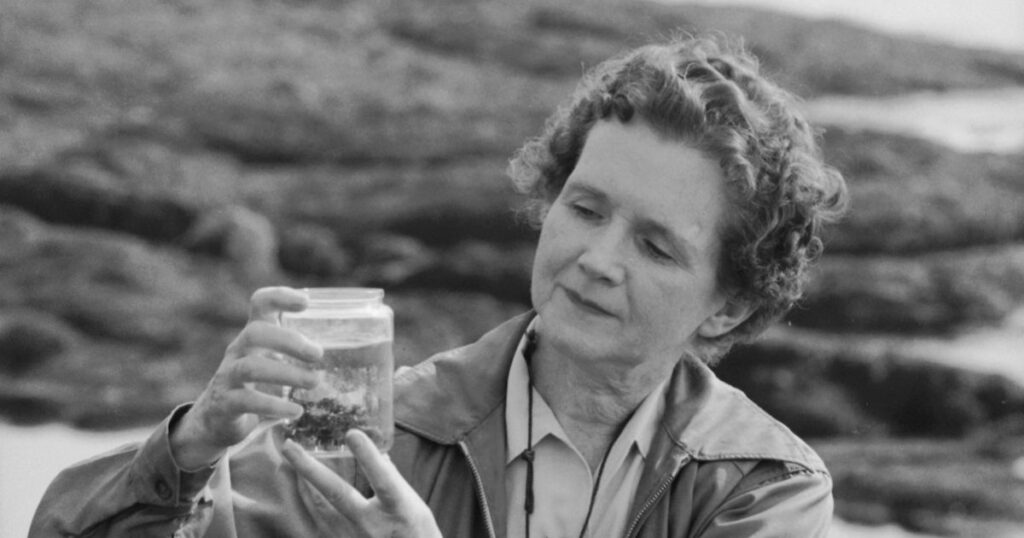
Most people have heard of Rachel Carson, who was a renowned nature writer, and a former marine biologist for the US Fish and Wildlife Service. Carson’s 1962 book, Silent Spring, raised the alarm about DDT and the harm that this and other pesticides did to wildlife and human health. DDT, for instance, damages eggshells, leading to mass die-offs of bald eagles and other wild birds. Carson’s work is often credited with paving the way for the modern conservation movement.
What’s less well-known is that Carson identified as a lesbian. Beginning in 1953, she had a passionate relationship with Dorothy Freeman which lasted until Carson’s death from breast cancer in 1964. They wrote to each other frequently, professing their love. During this era, even the slightest hint of homosexuality was stigmatized, illegal, even dangerous. Even more sensitive, Freeman was married. To protect Carson’s work and to avoid scandal, the couple burned many of the letters they wrote. Just before her death, Carson destroyed all her personal correspondence.
Carson’s work was based on a relentless pursuit and presentation of scientific facts at a time when attacking the chemical industry was risky. Executives branded her as hysterical and unscientific, a spinster with no social standing, and even worse, a woman. Tragically, Carson had to make a choice between her cause and her identity. Yet it is unlikely that in that era Carson’s work would have gained so much traction if she had revealed her whole personhood. Her sacrifice had a huge impact, leading to the banning of DDT, the Clean Water Act, the Clean Air Act and many other steps toward a healthier planet.
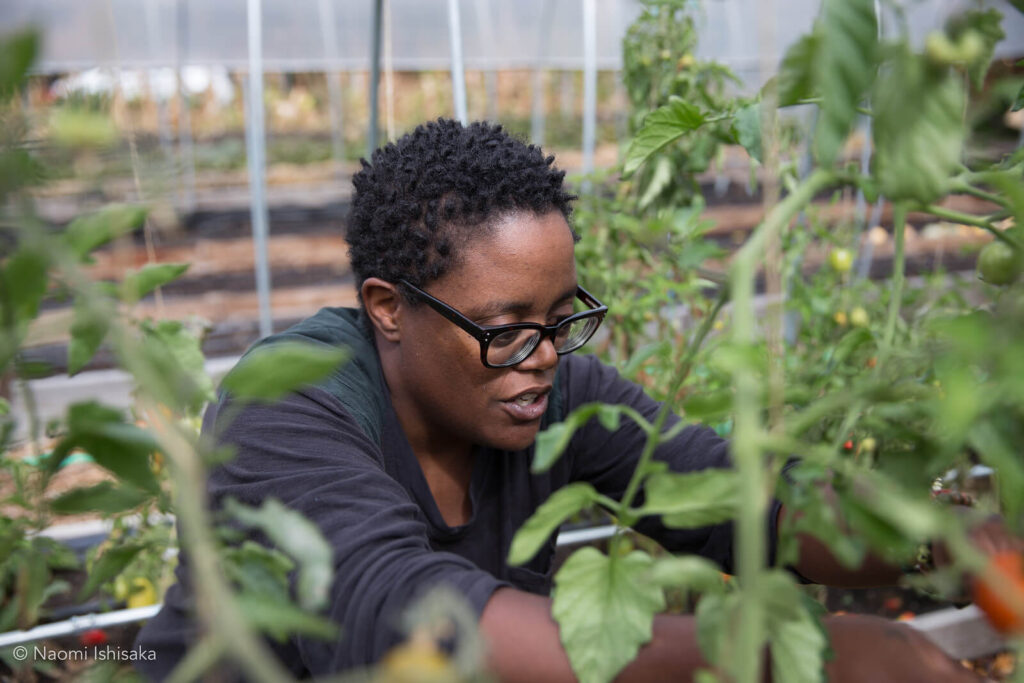
Dean Jackson of @qtpocfarmer identifies as a Black, queer, trans, and non-binary farmer who created an organization called Hilltop Urban Gardens (HUG) in Tacoma more than a decade ago. Dean and their team grow vegetables, herbs, and fruit to distribute in a community food-share program, the HUG Grub Food Share. They operate a weekly food stand where people can pick up fresh produce and, hopefully, get involved with growing the food. The garden’s ethos is rooted in food justice, the idea that everyone deserves access and the ability to produce and distribute fresh, affordable, healthy, clean, sustainable, safe, and culturally appropriate food. They work to build communities that take care of each other.
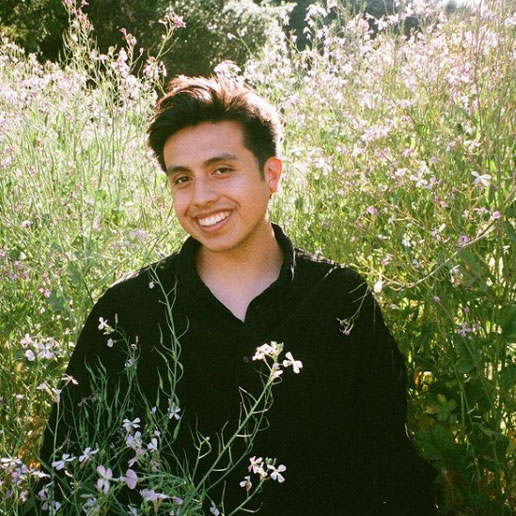
Isaias Hernandez grew up in Los Angeles as a Mexican American immigrant, living in subsidized housing in the San Fernando Valley near toxic industrial sites that polluted air and water. He went on to study environmental science at University of California, Berkeley. But after he graduated, he realized that a lot of environmental education is inaccessible to people of diverse backgrounds. He started Queer Brown Vegan to write about topics that range from diversity, to environmental justice, to advice on how to live more sustainably, to foraging for mushrooms, a hobby he shares with his partner. A central theme of his work is how migration, environmental injustice, gender discrimination and environmental destruction intersect and amplify each other.
What began as a side gig has become a full-time endeavor: His Instagram, queerbrownvegan, had 116,000 followers at last count, and his work has been featured in The New York Times, The Guardian and Teen Vogue. Hernandez emphasizes inclusiveness. He often stresses that both small actions (changing your diet) and large movements (global climate protests) have their place. He says that everyone—old and young, BIPOC and not, immigrant and not—need to come together to build community and fight for the planet.
